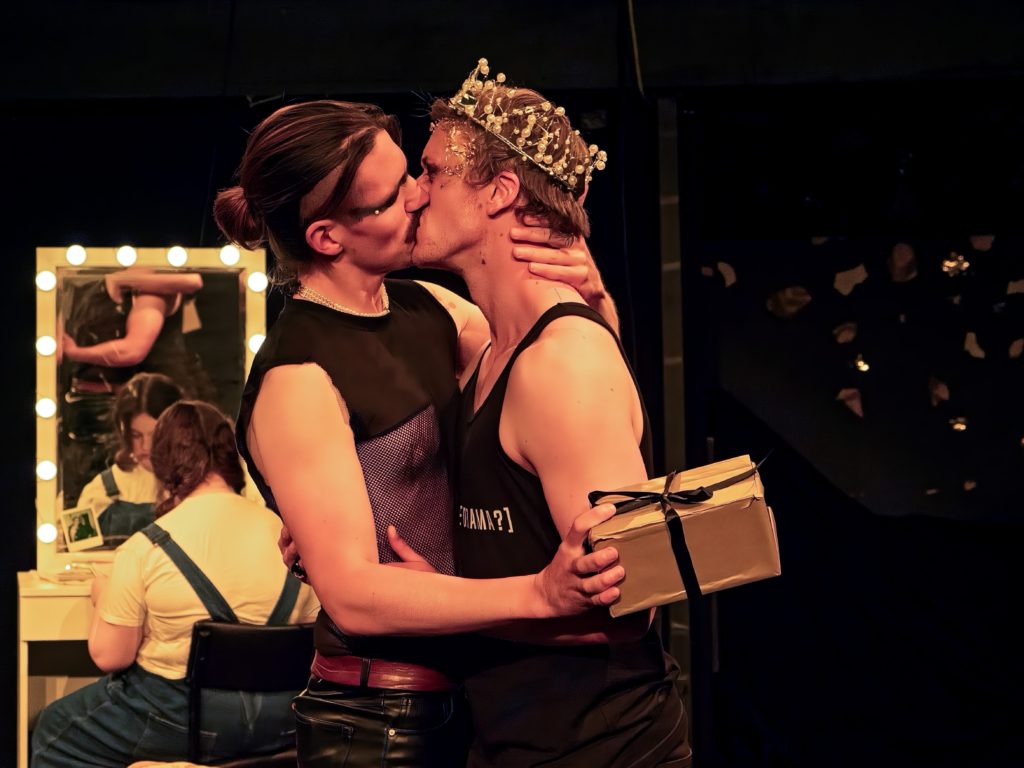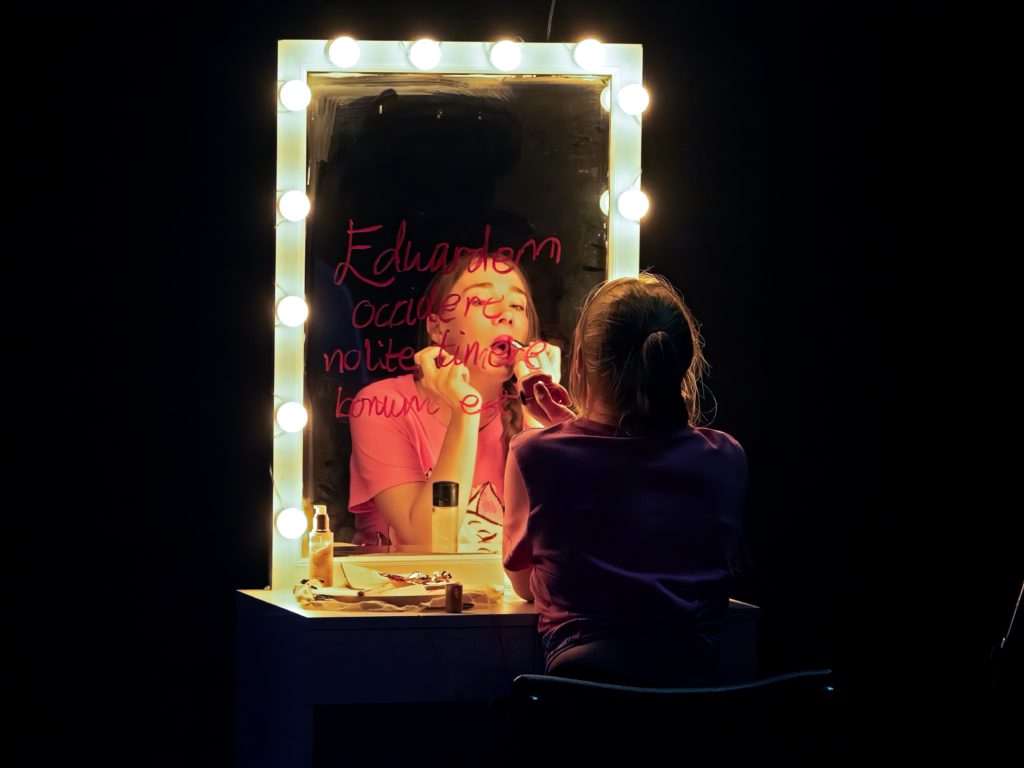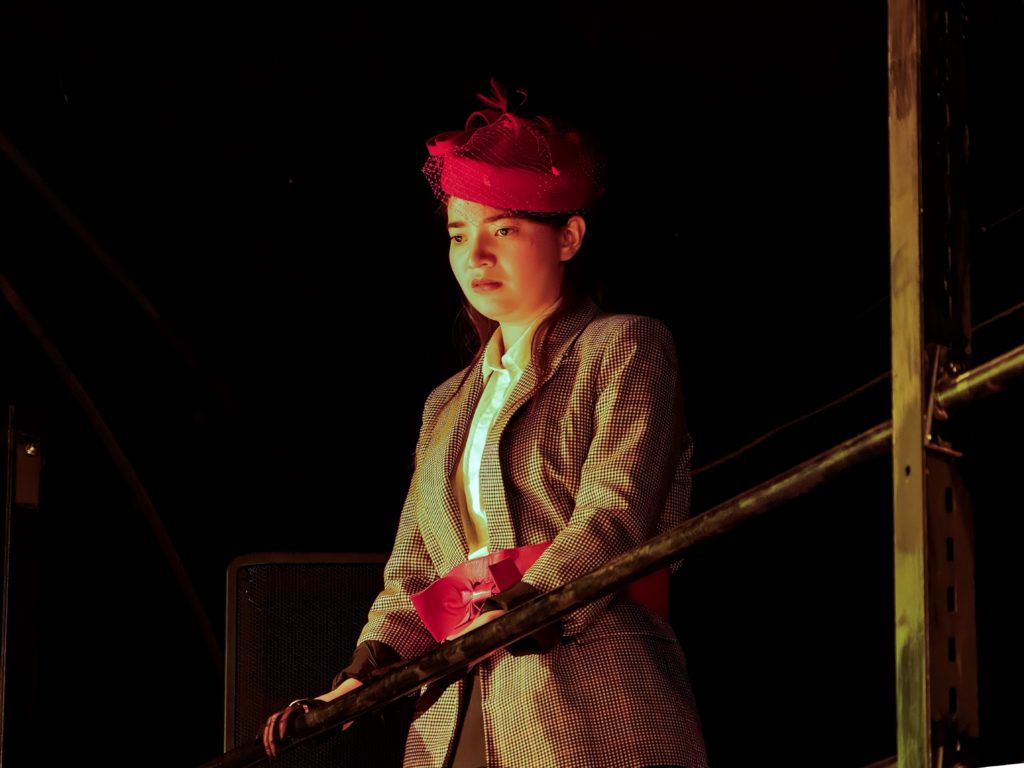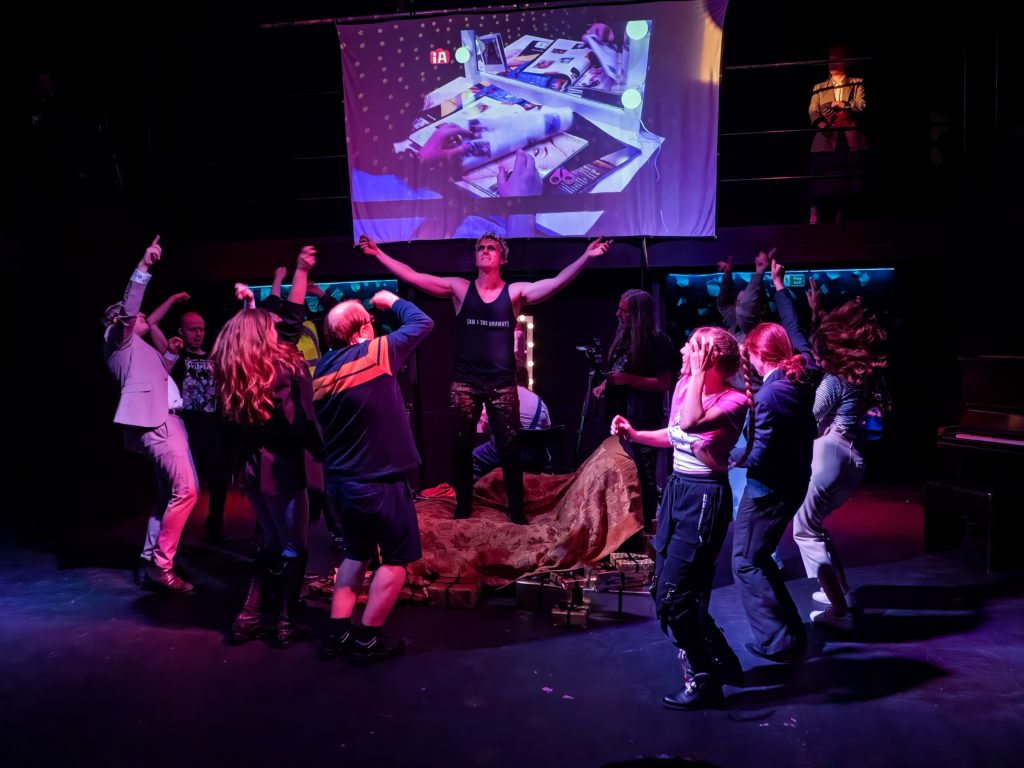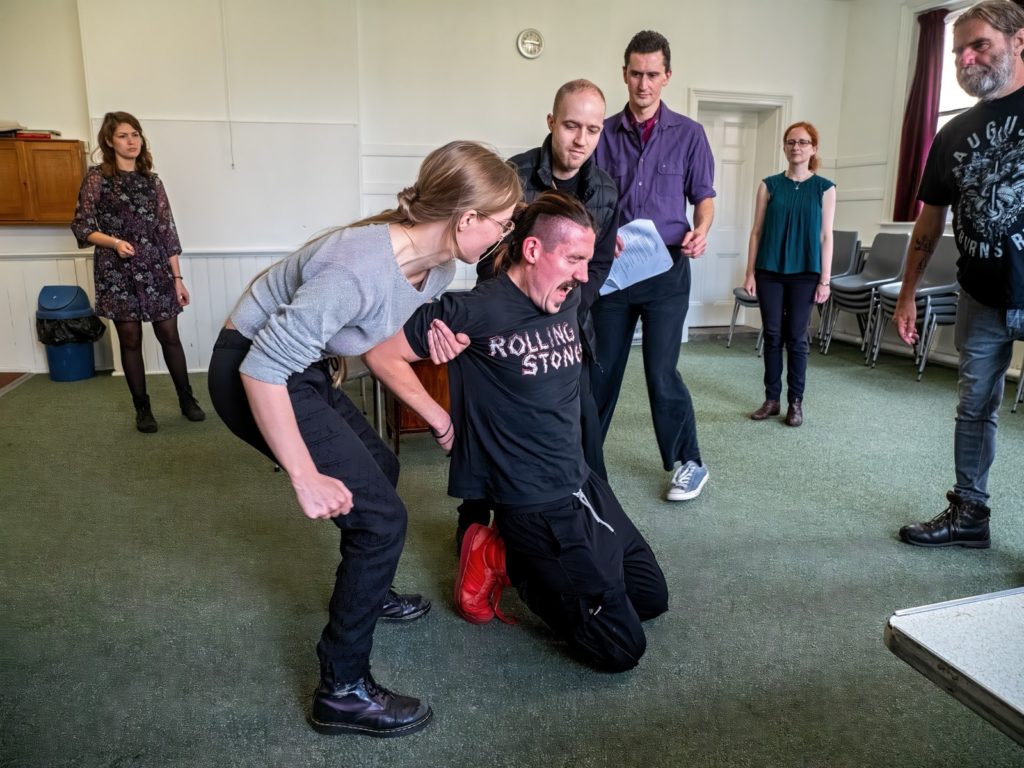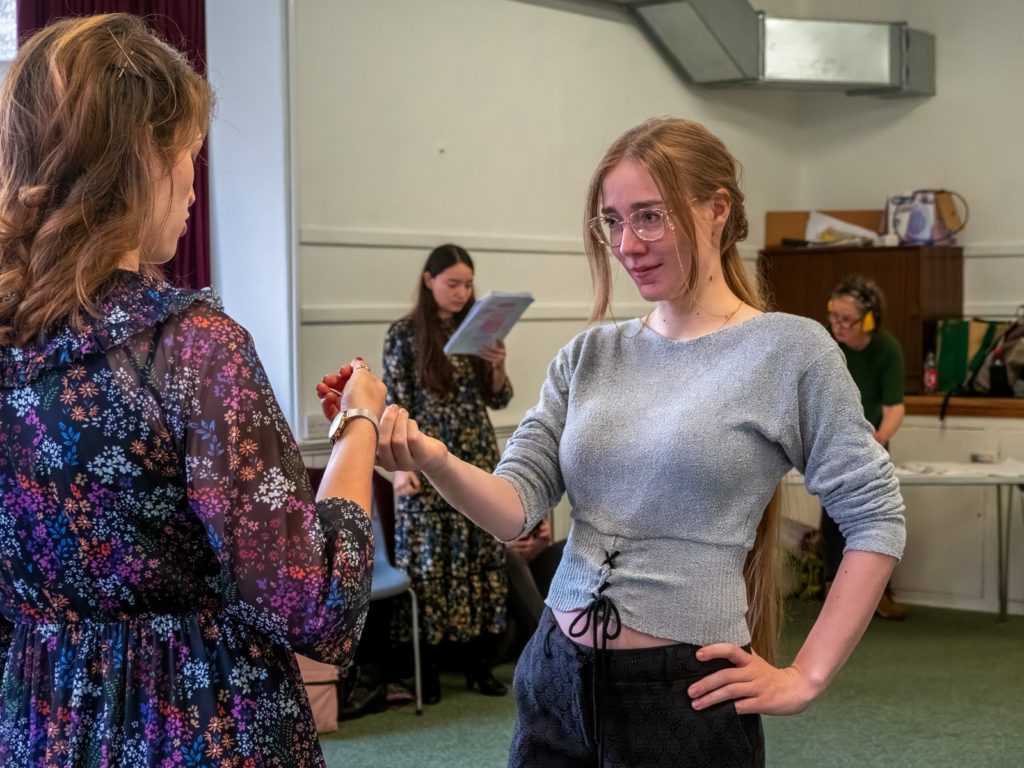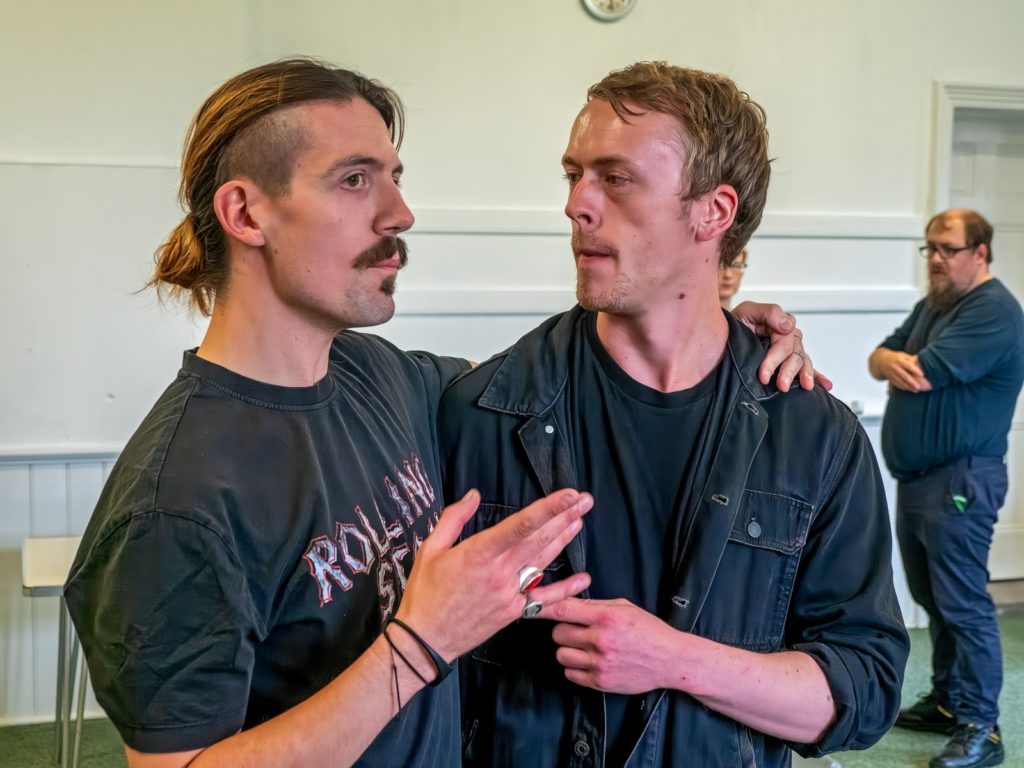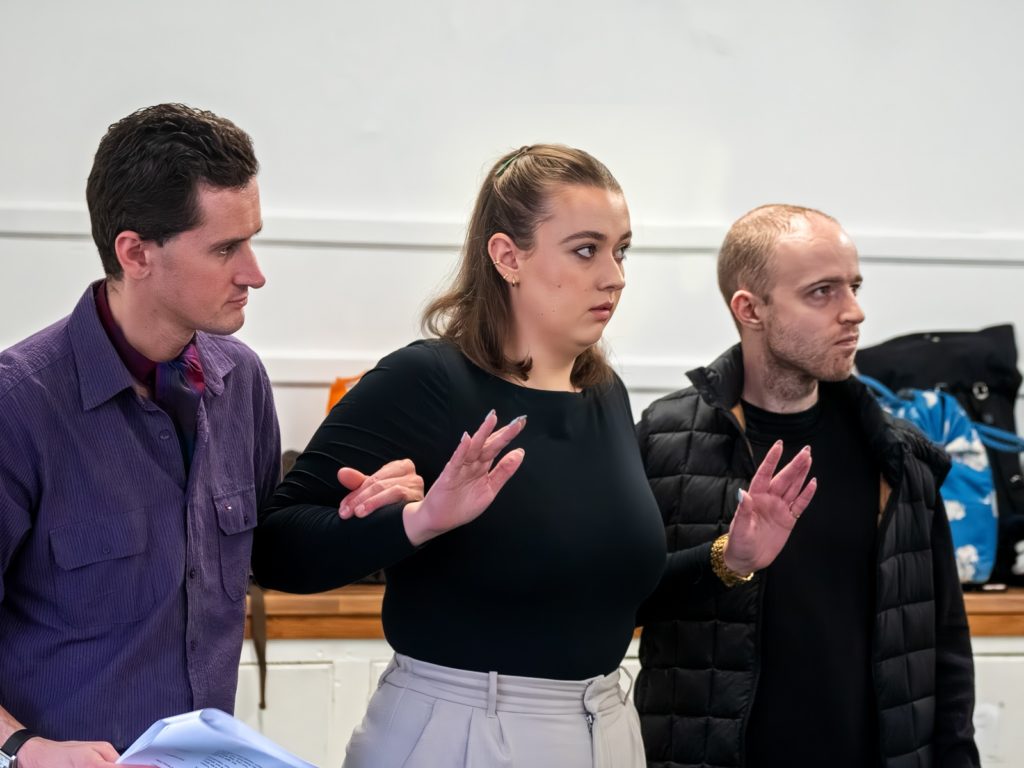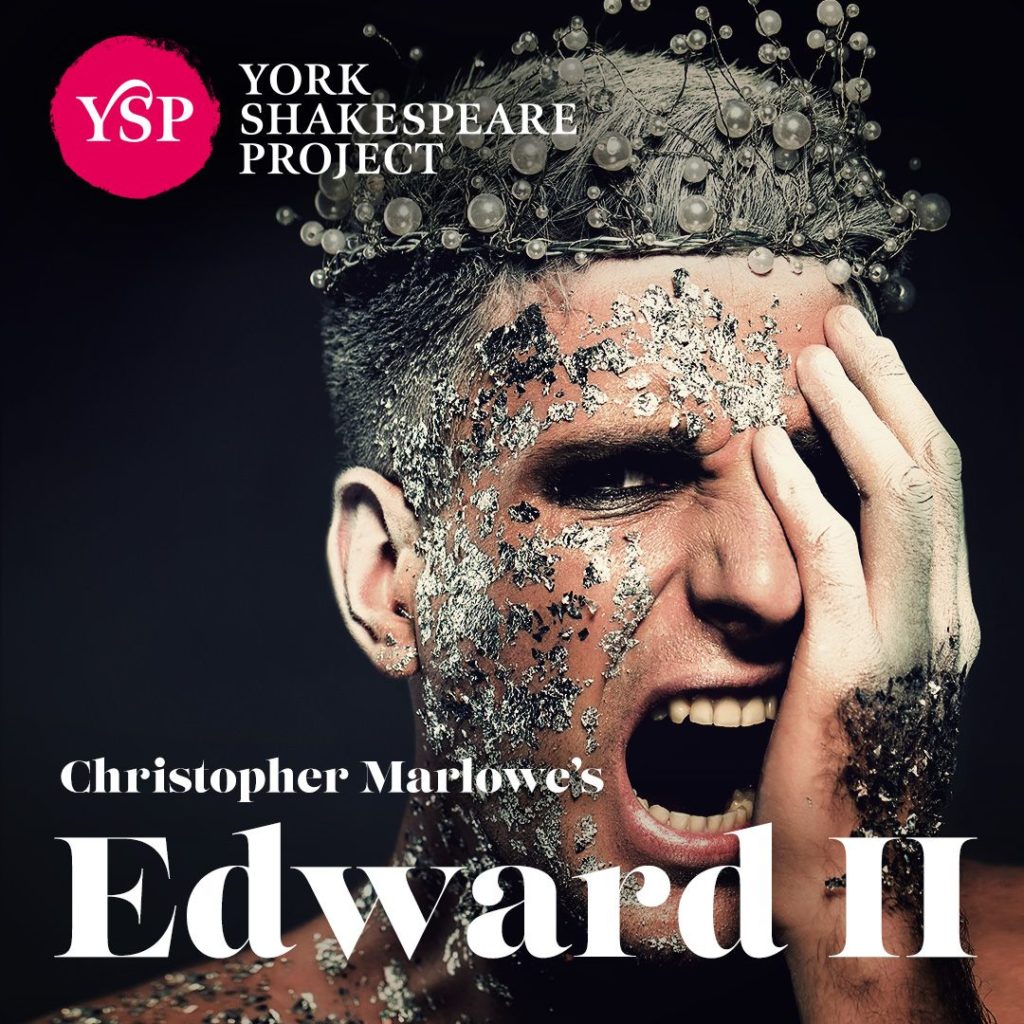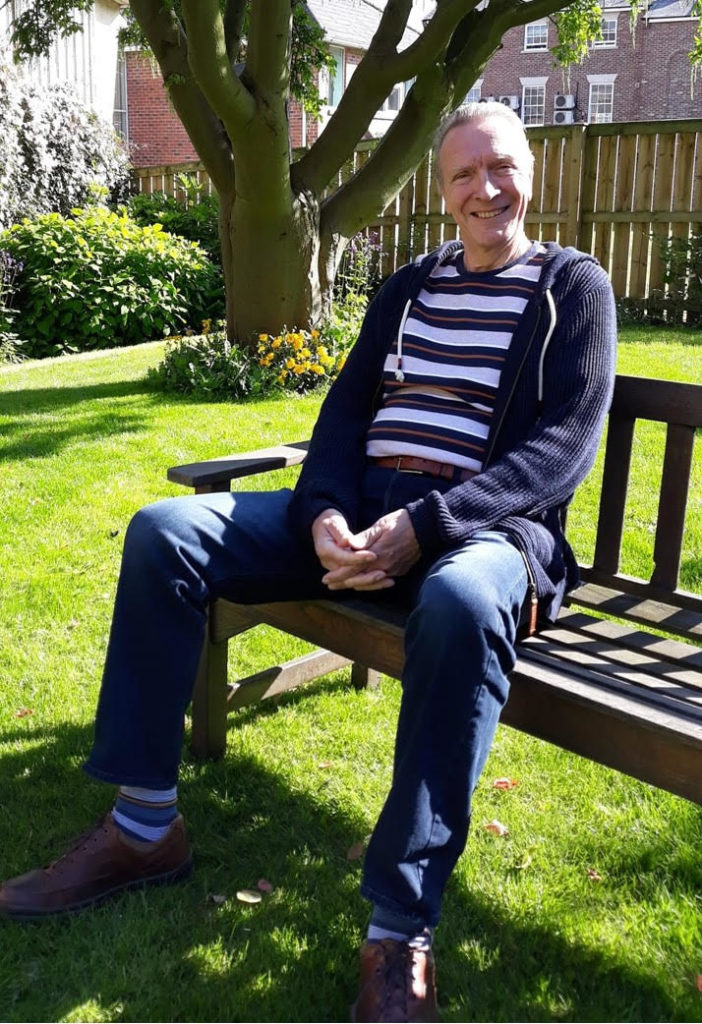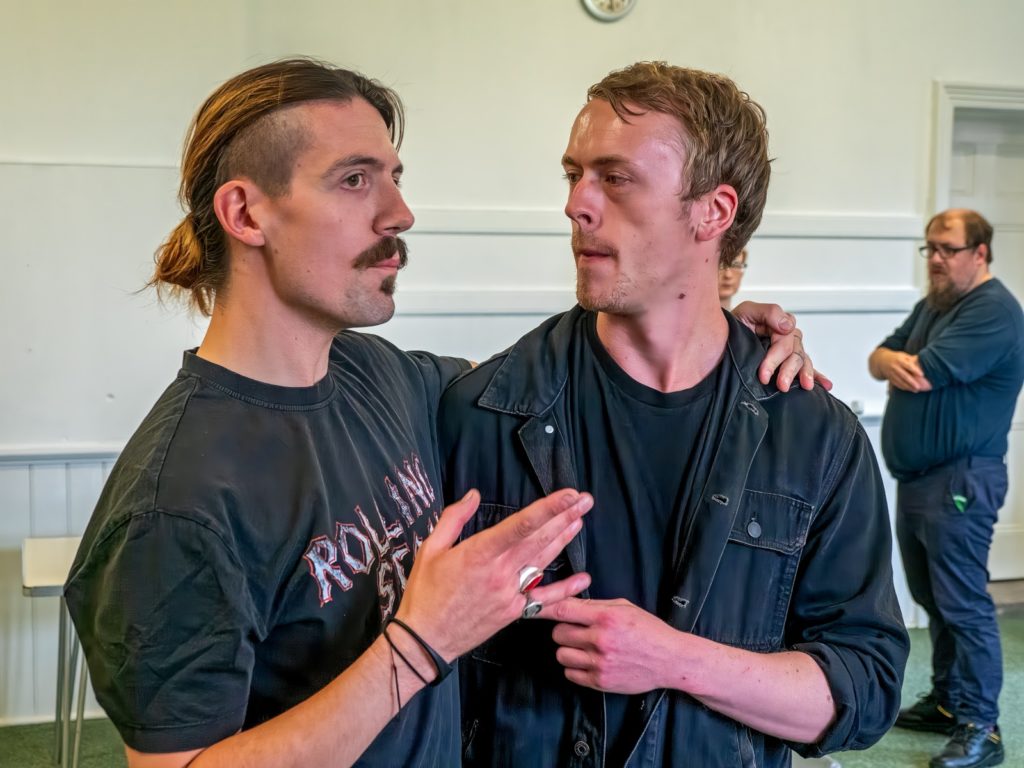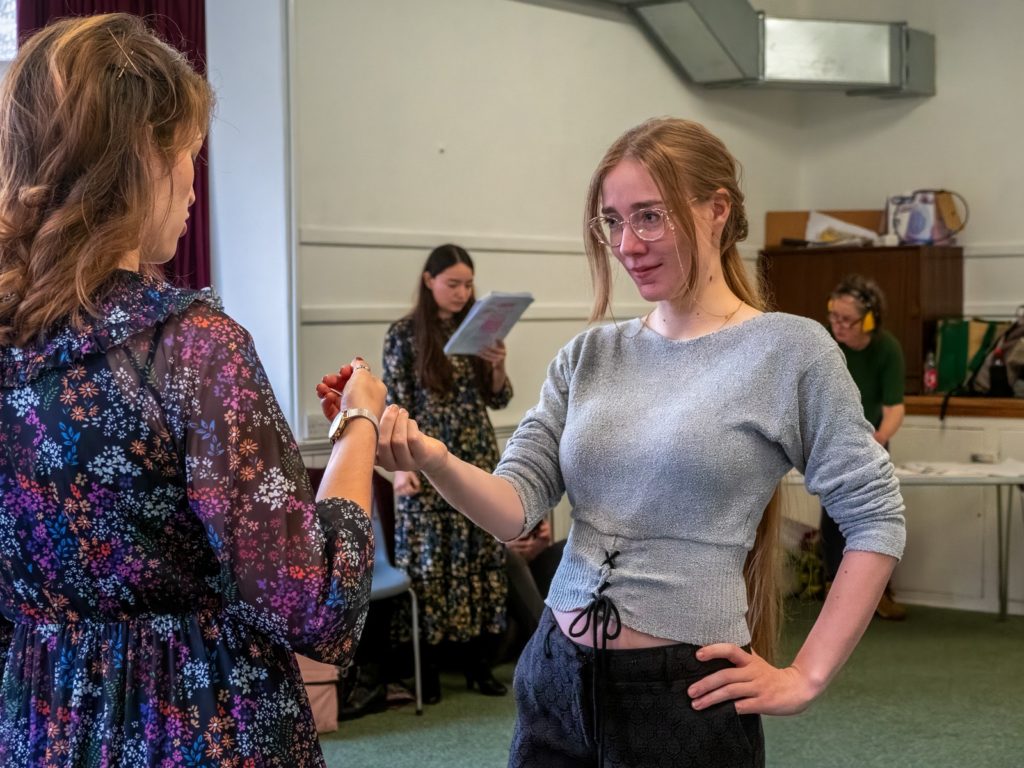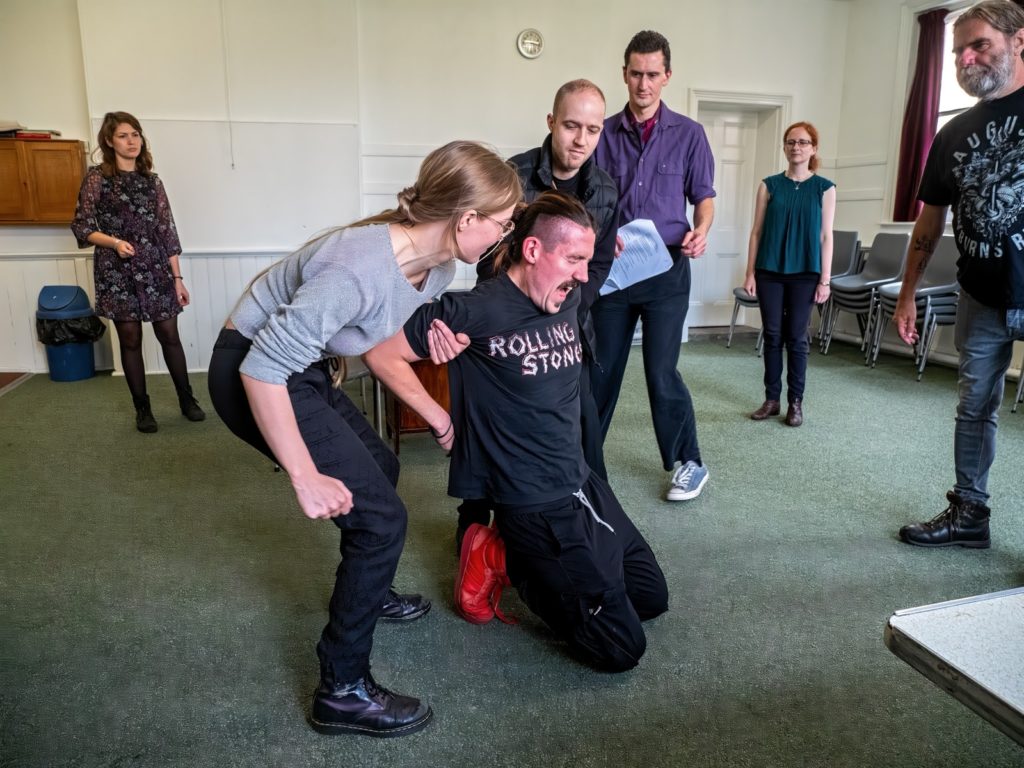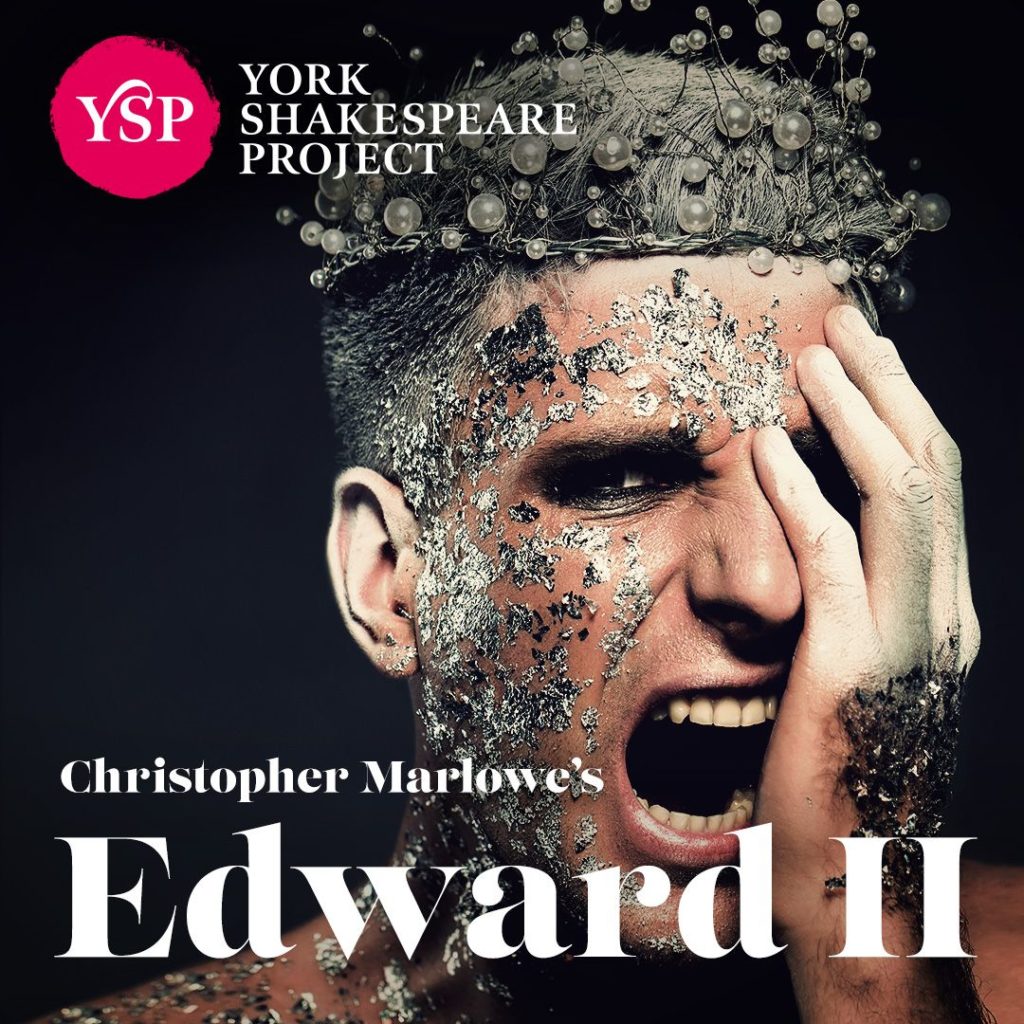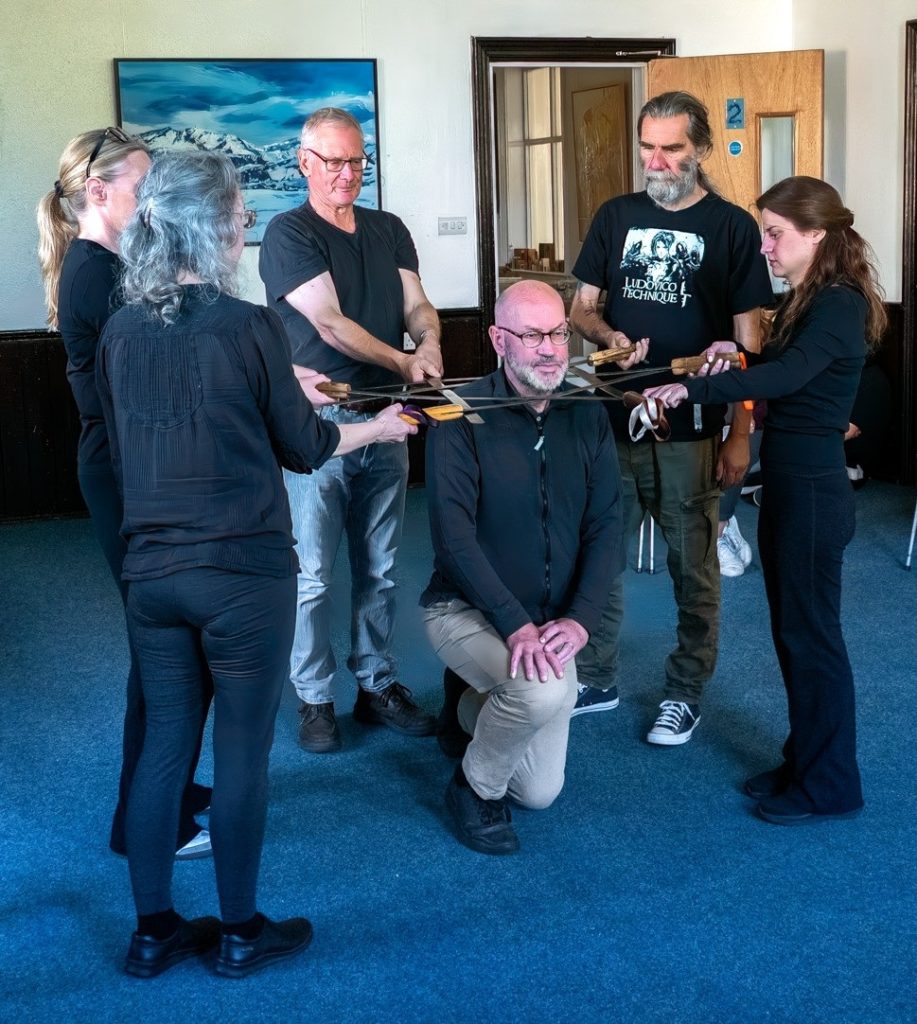
Six members of Paul Toy’s cast of 17 rehearsing a scene from Thomas Kyd’s The Spanish Tragedy. Picture: John Saunders
THOMAS Kyd’s The Spanish Tragedy is “the Elizabethan play that outsold Shakespeare”, but then was lost to the professional stage for 300 years and is now performed only rarely.
One such performance will be at Theatre@41, Monkgate, York, from Wednesday to Saturday when Paul Toy directs York Shakespeare Project for the fourth time (and first since Troilus And Cressida in 2011).
YSP chair Tony Froud said of his appointment in June: “Paul emerged from a very strong field of applicants with an exciting vision for this remarkable play. The Spanish Tragedy was the most popular play of the Elizabethan era, outselling Shakespeare. Kyd’s play set out the blueprint for a whole dramatic genre, ‘Revenge Tragedy’. Without it, there may have been no Hamlet, no The Duchess Of Malfi.”
The chance to present such a landmark drama in tandem with all of Shakespeare’s plays was exactly why York Shakespeare Project launched its second 25-year cycle of productions in April 2023, with a view to performing the likes of Christopher Marlowe, Ben Jonson…and Thomas Kyd.
“This is one of the plays that I would have been on the lookout to see had I not been directing it,” says Paul, who had directed The Taming Of The Shrew in 2003 and Titus Andronicus in 2004, as well as Troilus And Cressida, “in the first canter through all Shakespeare’s canto”.
“You would need to go a little below the headlines, though not be a connoisseur or scholar, to know his work. Jonson still crops up, so does Marlowe, but not Kyd, who’s unlucky in that this is his only play that has survived, apart from a translation of a French play and may be an “Ur-version” [the original or earliest version] of Hamlet from around 1589 that preceded Shakespeare’s play, but really The Spanish Tragedy is the only one of significance”
Kyd would die at the age of 36 in 1594, only two years after The Spanish Tragedy was premiered, “He shared a writing room with Marlowe in London, but because Marlowe was under the eyes of the authorities, on account of his atheism and his homosexuality, Kyd was tortured, simply because he was in the wrong place at the wrong time, but was released without charge.
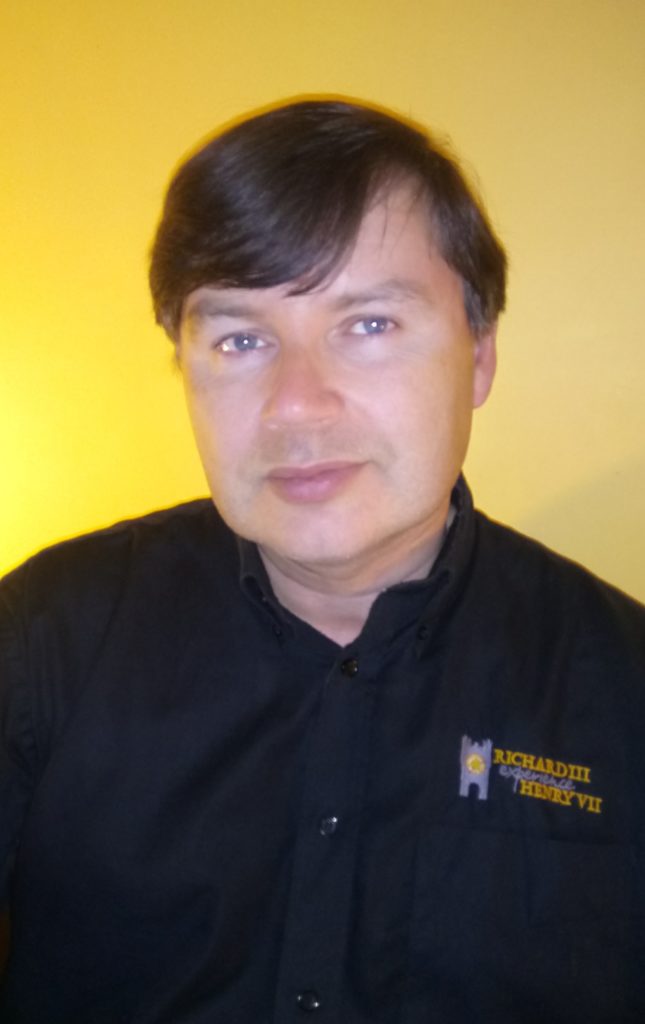
The Spanish Tragedy director Paul Toy
“Marlowe died in a tavern brawl in Deptford in May 1593, not long before Kyd, who didn’t survive as long as Jonson and Shakespeare but was under a cloud through no fault of his own.”
Nevertheless, The Spanish Tragedy was groundbreaking. “If you say you haven’t ever seen it, if I talked to you afterwards, I bet you would recognise all the tropes that it set down for ‘Revenge Tragedy’, like the ghost coming back to demand revenge; a hero deliberating over whether to seek revenge; madness and a play within a play,” says Paul.
Scholarly speculation has it that Will the Quill may even have penned passages of Kyd’s play. “You will see the precursor to Shakespeare’s Hamlet there, but Kyd doesn’t have the depth that late Shakespeare plays had. What you see is what you get in Kyd, and what you get is laid down pretty clearly,” says Paul.
In a nutshell, a play suffused with treachery, deceit and disguise that now carries the warning: “Contains depictions of self-injury, murder and suicide”. All delivered by Toy with masks, music and dance.
“I would say it’s plot driven, rather than character driven, and poor old Kyd, we all now know the tropes, the tricks of the trade, of revenge plays, but no-one did it before him. But the problem with being the pioneer is that it doesn’t have what others then built on,” says Paul.
His production has “a Spanish look rather than being full-on Spain”. “It’s suggestive of things like the Day of the Dead and other processions, the Counter-Reformation, but it’s also rather obsessive in its tone,” says Paul.
“It involves both the human and the supernatural, and if you’ve seen the York Mystery Plays, you’ll see where aspects of his work will have come from. It’s almost the definition of a play on the San Andreas Fault, pitched between the medieval and the early modern. If you know The Last Judgement from the Mystery Plays, there’s quite a lot that’s familiar.
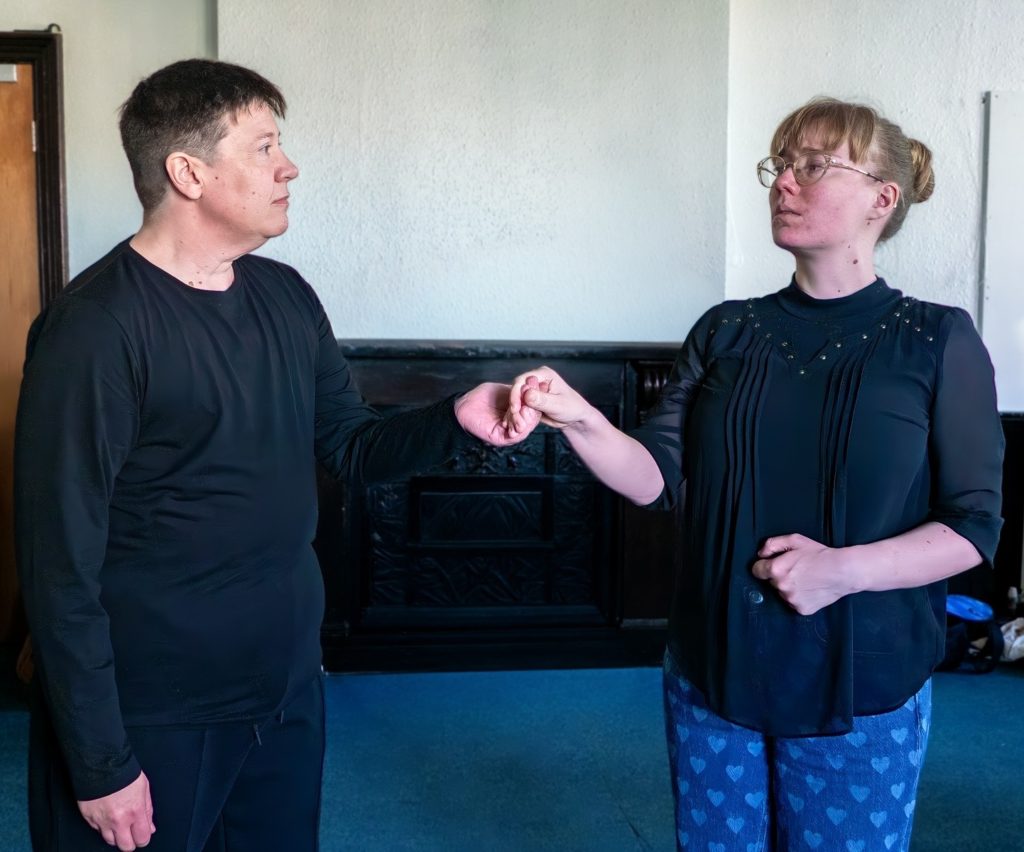
Harry Summers and Emma Scott in rehearsal for York Shakespeare Project’s The Spanish Tragedy
“Our production acknowledges it’s not modern, it’s recognisably ‘period’, but culturally it still goes through to modern times.”
Paul describes Kyd’s text as a “very rhetorically minded play, full of people arguing the case for themselves or maybe for someone else, so it’s like a collection of closing statements that barristers give to the judge”.
“With some of the past plays I’ve directed, I’ve enjoyed the visual elements, the modernisation elements or the physical elements, but because the text of this play isn’t familiar, I thought it was important to concentrate on the text, doing it as a ‘language play’.
“But we also have the advantage of it being an old play that we can treat like a new, modern play because it’s not well known, whereas it’s very difficult to do that with Shakespeare because you’re so bombarded by his plays.”
As for The Spanish Tragedy’s violent reputation, come the end, spoiler alert, there are “as many people horizontal as there are in Hamlet”, says Paul. “But partly because of the laundry bill, I’ve gone for only one big ‘bloody’ death. The rest are by other means, hopefully more unexpected, and if it takes you by surprise, all the better!”
York Shakespeare Project in The Spanish Tragedy, Theatre@41, Monkgate, York, October 22 to 25, 7.30pm. Box office: tickets.41monkgate.co.uk.
York Shakespeare Project’s cast for The Spanish Tragedy
Ghost of Andrea – David Lee
Revenge – Vivian Wilson
King of Spain – Tony Froud
Cypriana, Duchess of Castile – Emily Hansen
Lorenzo – Tom Jennings
Bel-imperia – Emma Scott
General – Alan Sharp
Viceroy of Portugal – Nick Jones
Balthazar – P J Gregan
Alexandro – Ben Reeves Rowley
Villuppo – Tim Holman
Ambassador – Cassi Roberts
Hieronimo – Harry Summers
Isabella – Sally Mitcham
Horatio – Yousef Ismail
Pedringano – Isabel Azar
Serberine – Martina Meyer
Christophil – Phil Massey
Watchmen 1, 2, 3 – Alan Sharp, Nick Jones, Tim Holman
Messenger – Cassi Roberts
Deputy – Martina Meyer
Hangman – Alan Sharp
Maid – Martina Meyer
Servant 1 and 2 – Martina Meyer, Ben Reeves Rowley
Old Man – Tim Holman
Nobles 1 and 2 – Martina Meyer, Ben Reeves Rowley
Minos, Aeacus, Rhadamanth – PJ Gregan, Nick Jones, Tim Holman
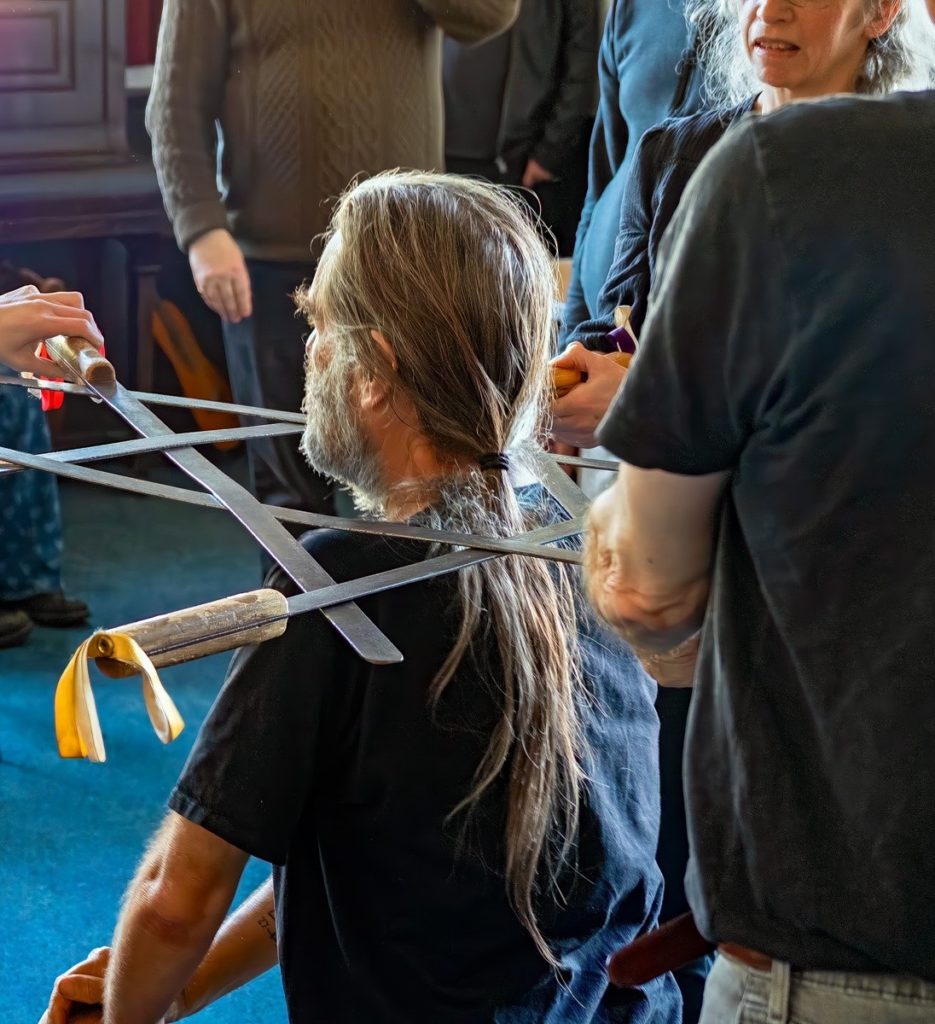
Alan Sharp, proprietor of White Rose York Tour, comedian and The Chase winner, will be playing a trio of roles in The Spanish Tragedy. Picture: John Saunders

